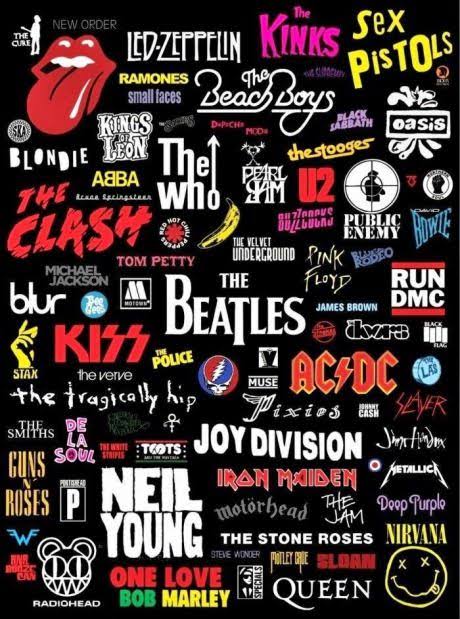ROCK METAL LEGENDS VS. MAINSTREAM IDOLS: In the grand tapestry of modern music history, few debates rage as fiercely as the one comparing mainstream award-winning pop idols with the enduring legacy of rock and metal legends.
In the grand tapestry of modern music history, few debates rage as fiercely as the one comparing mainstream award-winning pop idols with the enduring legacy of rock and metal legends. From the thunderous riffs of Led Zeppelin to the stadium-shaking anthems of AC/DC, the critical acclaim and cultural impact of rock’s elite often go unmatched — even when many of these artists are overlooked by mainstream award institutions. Now, in an age when social media and streaming metrics influence perception as much as musicianship, fans and industry veterans alike are revisiting a long-standing question: Why do some of the greatest rock and metal bands remain sidelined during major award seasons, while newer pop idols rack up trophies year after year?
LEGENDS IN SOUND, YET OUT OF THE SPOTLIGHT
The Beatles, arguably the most influential band of all time, set a precedent for musical and cultural transformation. Their 11 Grammy Awards only scratch the surface of their contribution to music. Though heavily awarded compared to other rock bands, even they were often underappreciated during their peak by institutions that didn’t fully grasp the cultural wave they were spearheading.
Then there’s Led Zeppelin — pioneers of hard rock and metal whose sheer influence is staggering. Despite their revolutionary impact and massive sales, they have only won one Grammy in their entire career — a Lifetime Achievement Award in 2005. Their iconic tracks like “Stairway to Heaven” and “Whole Lotta Love” have become part of rock’s DNA, yet major recognition in their prime eluded them.
Judas Priest, the godfathers of British heavy metal, helped shape the genre with operatic vocals and leather-studded aesthetics. Although they finally received a Grammy in 2010 for Best Metal Performance (“Dissident Aggressor”), it came decades after their critical and commercial peak. Similarly, Iron Maiden, a band that has sold over 100 million records worldwide and boasts one of the most loyal fan bases, has never won a Grammy despite being nominated multiple times.
AWARDS VS. IMPACT: A DIFFERENT METRIC
Rock and metal artists often measure success differently. The Rolling Stones, with over 60 years of musical dominance, have garnered multiple Grammys, yet many fans argue their true awards are the countless sold-out tours and global fan adoration. Their cultural resonance far surpasses their trophy count.
Fleetwood Mac‘s “Rumours” remains one of the best-selling albums of all time and finally brought home the Album of the Year Grammy in 1978. However, their influence — particularly during the 70s and 80s — was far more widespread than their award shelf might indicate.
AC/DC, another monumental force in rock, has just one Grammy to their name. “Back in Black” remains one of the highest-selling albums in history, yet their lack of mainstream accolades starkly contrasts with their commercial success and generational reach.
Meanwhile, Accept, the German heavy metal legends behind the genre-defining “Balls to the Wall,” have never been recognized by the Grammys. Their loyal fanbase, especially in Europe and South America, see this as further proof that awards don’t always reflect talent, innovation, or impact.
THE IDOL PHENOMENON
In contrast, modern pop idols such as Taylor Swift, Billie Eilish, and BTS have received multiple Grammy Awards early in their careers. Thanks to massive industry support, social media dominance, and a pop-oriented voting academy, these artists often find themselves frequently celebrated.
This discrepancy has sparked debates among fans. “How can someone like Iron Maiden, who’s been changing lives for over four decades, have zero Grammys, while newcomers with two albums have five?” asked one fan during a recent Twitter/X thread that went viral.
INDUSTRY BIAS OR EVOLUTION?
Some argue that the Grammys and other mainstream institutions have long been biased toward genres that are commercially safe and heavily promoted by major labels. Rock and metal, often rebellious by nature and independent in structure, have historically not fit into those molds.
Yet others point to a changing industry, where awards reflect market trends more than legacy. “The Grammys are a business, not a history book,” said music historian Eliza Brooks. “Rock and metal may not dominate Spotify charts today, but their influence is eternal.”
CONCLUSION: WHO NEEDS TROPHIES?
At the end of the day, while pop idols continue to dominate award shows, the enduring legacy of rock and metal legends remains untarnished. Stadiums still sell out for AC/DC, Iron Maiden, and Judas Priest. Fleetwood Mac, The Rolling Stones, and Led Zeppelin continue to inspire new generations of musicians and fans alike.
As fans chant lyrics that were written decades ago and mosh pits swirl in festivals worldwide, one thing becomes clear — awards may decorate a shelf, but legends echo forever.
